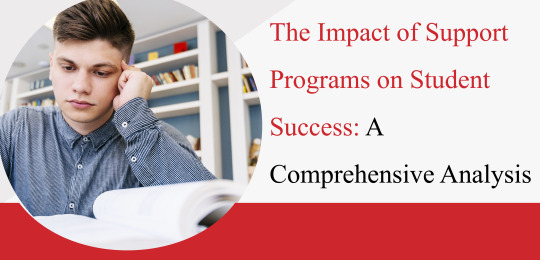#Student Support
Text

24/05/2023
Today i thought of making a diary here, where no one actually knows me.
So today was a tough day, there's this professor assistant that sabotages my assignment by literally giving wrong answers as if I am an idiot and I wouldn't understand. I wouldn't really care if it wasn't the subject i want to have my master on.
I haven't slept on a week trying to figure out how to make sense of what i am supposed to solve so i thought it would be useful to email him and ask for a meeting to solve some of the issues literally one day before deadline.
I am extremely stressed that reaches the point of bad panic attacks as if my life depends on it when it really doesn't. The reason i decided to start typing down these thoughts is that maybe there's someone who needs to hear that its okay to fail on something even if you work for it so damn hard, there's always a lesson to learn from those experiences.
And when you see a suspicious and weird behavior towards you from anyone, you are probably not paranoid. Like this assistant has been making my life difficult and has been behaving unprofessionally, by being mean to me since i set foot at university, and he just keeps on being mean.
To who ever reached this spot, thank you for reading it, Eat something good, sleep well and don't forget to take care of yourself<3
Yours, Silvermist
#greek blog#dear diary#ελληνικο tumblr#ελληνικα#greeksummer#ελλαδα#life quotes#student#student struggles#student support#student learning#university life#university diary#diary entry#my thougts#thoughts#seriously though#college#college living#college life#college struggles
3 notes
·
View notes
Text

Join our exclusive WhatsApp channel for insider tips, personalized support, and exciting updates from ED4WO Private Limited - Study Abroad Consultancy. '𝗧𝗮𝗽 𝗕𝗲𝗹𝗼𝘄' and let's make your dreams a reality.
#Study Abroad#International Education#Overseas Study#Study Destination#Education Consultancy#Student Support#Application Guidance#Scholarships#Career Opportunities
0 notes
Text
The Impact of Support Programs on Student Success: A Comprehensive Analysis
Support programs play a crucial role in fostering student success across various educational settings. This comprehensive analysis delves into the multifaceted impact of support programs on student outcomes, ranging from academic performance to personal development. Drawing on a wide array of research studies and case examples, this article examines the effectiveness of different types of support programs, identifies key components of successful interventions, and explores the implications for educators, policymakers, and stakeholders in enhancing student success. By synthesizing existing literature and offering insights into best practices, this analysis provides a comprehensive understanding of how support programs contribute to the holistic development and achievement of students in educational institutions.
In today's rapidly evolving educational landscape, the role of support programs in facilitating student success has garnered increasing attention from educators, policymakers, and researchers. From traditional mentoring initiatives to innovative peer tutoring schemes, support programs encompass a diverse range of interventions designed to address the multifaceted needs of students in various educational settings. While the importance of these programs is widely acknowledged, a comprehensive analysis of their impact on student outcomes is essential for informing effective practices and policies.
This article aims to provide a thorough examination of the impact of support programs on student success, encompassing academic achievement, socio-emotional development, and overall well-being. By synthesizing existing research findings and analyzing pertinent case examples, we seek to elucidate the mechanisms through which support programs influence student outcomes and identify key factors contributing to their effectiveness.
Effectiveness of Support Programs:
Support programs encompass a wide array of interventions, including academic tutoring, mentoring, counselling services, peer support groups, and extracurricular activities. Despite their diverse forms, these programs share a common objective: to provide students with the resources, guidance, and encouragement necessary to thrive academically and personally. Research indicates that well-designed support programs can have a significant positive impact on student success across various domains.
Academic Performance: One of the primary goals of support programs is to enhance academic performance by providing students with additional instructional support, remediation, or enrichment opportunities. Numerous studies have demonstrated the effectiveness of academic tutoring programs in improving student learning outcomes, particularly in subjects such as mathematics and literacy. Similarly, peer mentoring initiatives have been shown to boost academic achievement by fostering a supportive learning environment and promoting peer collaboration.
Socio-Emotional Development: Beyond academic gains, support programs also play a crucial role in supporting students' socio-emotional development and mental well-being. Counselling services, peer support groups, and wellness programs offer students a safe space to discuss personal challenges, navigate interpersonal relationships, and develop coping strategies for managing stress and anxiety. Research suggests that students who participate in such programs demonstrate greater resilience, self-efficacy, and emotional intelligence, which are essential for success both inside and outside the classroom.
Retention and Graduation Rates: Support programs can also significantly impact retention and graduation rates by addressing the underlying factors contributing to student attrition. For example, first-year experience programs provide incoming students with orientation, academic advising, and peer support to facilitate their transition to college life and mitigate early dropout risks. Similarly, targeted interventions for at-risk populations, such as low-income students or students with disabilities, can improve retention rates by addressing systemic barriers and providing tailored support services.

Factors Contributing to Effectiveness:
While the effectiveness of support programs may vary depending on context and implementation, several key factors have been identified as critical for maximizing their impact:
Individualized Support: Tailoring interventions to meet the unique needs and preferences of students is essential for promoting engagement and success. Whether through one-on-one tutoring sessions or personalized counselling sessions, individualized support allows students to receive targeted assistance that addresses their specific challenges and goals.
Collaborative Partnerships: Building collaborative partnerships between educational institutions, community organizations, and stakeholders is essential for leveraging resources, expertise, and support networks. By fostering synergies and sharing best practices, collaborative initiatives can enhance the reach and effectiveness of support programs while promoting a culture of shared responsibility for student success.
Data-Informed Decision Making: Utilizing data-driven approaches to program evaluation and improvement enables educators and policymakers to assess the impact of support programs, identify areas for growth, and allocate resources strategically. By collecting and analyzing data on student outcomes, satisfaction levels, and program effectiveness, institutions can make informed decisions that optimize the allocation of resources and maximize the benefits for students.
Holistic Approach: Recognizing the interconnectedness of academic, social, and emotional factors in student success, support programs should adopt a holistic approach that addresses the diverse needs of students. Integrating academic support with wellness services, career counselling, and community engagement opportunities fosters a comprehensive learning environment that promotes holistic development and well-being.
Conclusion:
Support programs play a vital role in fostering student success by providing the resources, guidance, and encouragement necessary for academic achievement and personal development. These student support initiatives are instrumental in addressing the multifaceted needs of students in educational institutions. From academic tutoring to socio-emotional support initiatives, these programs encompass a diverse range of interventions designed to empower students to overcome challenges and thrive in their educational journey. By synthesizing existing research findings and analysing key factors contributing to effectiveness, this comprehensive analysis underscores the critical importance of student support programs in enhancing student outcomes. Moreover, it offers valuable insights for educators, policymakers, and stakeholders seeking to implement and optimize student support initiatives across diverse educational settings. Through targeted interventions and collaborative efforts, these stakeholders can collectively work towards creating an inclusive and supportive environment where every student has the opportunity to succeed.
0 notes
Text

MathYug Launches Innovative Mathematics Memberships, Revolutionizing Online Learning Experience. Empowerment, Expert Guidance, and Academic Excellence at the Forefront.
https://mathyug.com
#mathyug#mathematics education#online learning#math skills#academic excellence#mathematics memberships#student success#mathematics support#student support
0 notes
Text

Building Nursing Career: Your Gateway to the Best Nursing Schools
Embarking on a nursing career begins with a solid foundation from the best nursing schools. At Building Nursing Career, we understand the significance of choosing the right educational institution to shape your future in nursing.
Finding the best nursing school is a pivotal step in your journey towards becoming a competent and compassionate nurse. With Building Nursing Career, you gain access to a wealth of resources and guidance to help you navigate the process of selecting the perfect nursing program.
The best nursing schools offer comprehensive curricula, experienced faculty, and state-of-the-art facilities to prepare you for the demands of modern healthcare. At Building Nursing Career, we provide insights into renowned nursing programs known for their academic excellence and clinical training opportunities.
When considering the best nursing schools, factors such as accreditation, program outcomes, and student support services play a crucial role. Building Nursing Career equips you with the knowledge and tools to evaluate these factors effectively, ensuring that you make an informed decision about your educational journey.
From associate's degrees to doctoral programs, the best nursing schools offer a variety of pathways to accommodate diverse career goals and aspirations. Building Nursing Career helps you explore these options and tailor your educational experience to align with your professional objectives.
Whether you aspire to specialize in a particular field of nursing or pursue advanced practice roles, the best nursing school provide a solid framework for success. Let Building Nursing Career be your guide as you embark on this transformative journey towards a rewarding and fulfilling nursing career.
Discover your path to excellence in nursing education with Building Nursing Career. Contact us today to explore the best nursing school options and take the first step towards realizing your aspirations in the dynamic field of nursing.
#Nursing#Career#school#nursing school#degrees#doctoral programs#student support#educational#educational institution
0 notes
Text
ESM Overseas: Your Partner in Global Education and Immigration
ESM Overseas is your reliable guide for USA immigration and higher education dreams. We provide end-to-end services, from consultation to settling down, with thousands choosing us for seamless immigration to the USA, Canada, Australia, NZ, and Singapore. Let ESM be your partner in turning dreams into reality.
#ESM Overseas#Global Education#Immigration Services#Higher Education#Study Abroad#USA Immigration#Canada#Australia#New Zealand#Singapore#Student Support#Seamless Process#Consultation Services#Settling Down Assistance
0 notes
Text
Creating Holiday Hampers for Students at School
Shaina Tranquilino
December 22, 2023

The holiday season is a time of joy, celebration, and giving. It's an opportunity to spread love and happiness to others, especially those who may be in need. One way to make a difference in your school community is by creating holiday hampers for students. These hampers can provide much-needed support and bring smiles to the faces of those who receive them. In this blog post, we will explore the steps you can take to create holiday hampers for students at your school.
Step 1: Assess the needs
Begin by assessing the needs of the students at your school. Reach out to teachers, counselors, or administrators who may have insights into which students might benefit from receiving holiday hampers. This step is crucial as it ensures that your efforts are directed towards those who truly need assistance during this festive season.
Step 2: Set goals and gather resources
Once you have identified the students who would benefit from receiving holiday hampers, set specific goals for your project. Determine how many hampers you aim to create and what items should be included in each hamper. Consider reaching out to local businesses, organizations, or even fellow students' families for donations of food items, toiletries, clothing, toys, or any other essentials that could be included in the hampers.
Step 3: Organize a collection drive
To gather the necessary resources for your holiday hampers, organize a collection drive within your school community. Spread awareness about your project through posters around the school building and announcements during morning assemblies. Encourage classmates, teachers, staff members, parents/guardians, and any other stakeholders associated with your school to donate items that can go into these hampers.
Step 4: Assemble the hampers
Once you have collected all the necessary items for your holiday hampers, it's time to assemble them. Find a suitable space within your school where you can sort and organize the donated items. Create a checklist of essential items for each hamper, ensuring that they are well-balanced with food, toiletries, and any other necessary supplies. Involve volunteers from your school community to help with this process, making it a collaborative effort.
Step 5: Distribute the hampers
The final step is distributing the holiday hampers to the students who will receive them. Work closely with teachers or counselors to ensure that the delivery is done discreetly and respectfully. Consider including personalized notes or cards in each hamper, spreading messages of love, support, and encouragement during the holiday season.
Remember, creating holiday hampers for students at school is not just about providing material goods but also about fostering a sense of belonging and care within your school community. It's an opportunity to show empathy, kindness, and compassion towards those in need during this festive time.
By following these steps - assessing needs, setting goals, gathering resources, organizing a collection drive, assembling the hampers, and distributing them thoughtfully - you can make a meaningful impact on the lives of students at your school. Let's come together as a community this holiday season and create moments of joy for those who may be facing challenges.
#holiday hampers#student support#spread the joy#giving back#school community#holiday cheer#kindness matters#helping hand#season of giving#sharing is caring#happy holidays#holidays#give when you can
0 notes
Text
Sometimes I wonder how seriously these students would take me if they knew how much therapy this therapist gets
#it’s a LOT#can someone with this many issues be qualified to help others? probably not#therapy#student support
0 notes
Text
#palestine#palestinians#gaza#genocide#gaza solidarity encampment#student protests#campus protests#support for palestine#anti genocide#pro palestine#columbia university#uc berkeley#sorbonne#mcgill university#u of t#university#gaza journalists#palestinian journalists#free palestine#free gaza#justice#oxford#cambridge
4K notes
·
View notes
Text

#mitsde#distance mba#distance learning#pgdm#distance education#distance courses#distance learning mba#distancelearning#pgdm course#pgdm colleges#supply chain management#supply chains#student support#supply and demand#pgdm in logistics and supply chain management#global logistics#logistics
0 notes
Text
reblog if you think these are all valid reasons for a student or an employee to take a day off from their school or their job without their grades or paycheck being affected in any way:
- period cramps
- exhaustion, be it mental or physical
- depression, anxiety, and other mental health related issues
#mental health#mental health awareness#mental health support#mental health issues#student#students#education#education system#politics#positivity#self love#self care#important psa#psa#academia#healthcare#hygiene#health and wellness#school#student life
2K notes
·
View notes
Text
Charting the Transformative Course of Schools and Colleges: Navigating the Educational Landscape
In the ever-evolving landscape of education, schools and colleges play a pivotal role in shaping the future of society. As we navigate through dynamic changes in technology, culture, and pedagogy, it becomes imperative to chart a course that ensures these institutions remain at the forefront of innovation and excellence. This article delves into the transformative journey of schools and colleges, exploring key trends, challenges, and strategies for navigating the educational landscape.
One of the most prominent trends shaping the educational landscape is the integration of technology into teaching and learning. With the advent of digital tools, online platforms, and immersive learning experiences, educators have unprecedented opportunities to engage students in dynamic ways. From interactive whiteboards and educational apps to virtual reality simulations and artificial intelligence-driven tutoring systems, technology has revolutionized the classroom, making learning more accessible, interactive, and personalized.
However, with these advancements come challenges, including the digital divide, data privacy concerns, and the need for ongoing professional development for educators. Bridging the gap between technology haves and have-nots requires concerted efforts to ensure all students have access to reliable internet connectivity and digital devices. Moreover, safeguarding student data and privacy in an increasingly digitized environment is paramount, necessitating robust policies and practices to protect sensitive information.
Another key trend in education is the shift towards student-centred learning approaches. Recognizing that one size does not fit all, educators are embracing pedagogical strategies that empower students to take ownership of their learning journey. Project-based learning, inquiry-based learning, and competency-based education are just a few examples of student-centred approaches that prioritize collaboration, critical thinking, and creativity. By encouraging active participation and fostering a sense of agency, these approaches cultivate lifelong learners who are equipped to tackle real-world challenges.
Embracing Technological Advancements:
One of the most significant shifts in education has been the integration of technology into teaching and learning processes. From interactive whiteboards and online learning platforms to immersive virtual reality experiences, schools and colleges are leveraging technology to enhance engagement, accessibility, and personalized learning. By embracing technological advancements, educators can create dynamic learning environments that cater to diverse student needs and prepare them for success in a digital world.
Furthermore, technology facilitates collaboration among students and educators beyond the confines of physical classrooms. Through online discussion forums, collaborative document editing tools, and video conferencing platforms, schools and colleges can foster a culture of teamwork and communication, essential skills for the 21st century.

Fostering Inclusive Practices:
Inclusivity has become a cornerstone of modern education, emphasizing the importance of diversity, equity, and accessibility. Schools and colleges are increasingly adopting inclusive practices to ensure all students have equal opportunities to learn and thrive. This involves addressing barriers to education, promoting cultural sensitivity, and providing support services for students with diverse backgrounds and abilities.
Inclusive practices also extend to curriculum design, with educators incorporating diverse perspectives, experiences, and voices into their teaching materials. By embracing diversity and fostering a sense of belonging, schools and colleges can create inclusive environments where every student feels valued and empowered to succeed.
Empowering Student-Centered Learning:
The shift towards student-centered learning approaches is revolutionizing traditional educational paradigms. Instead of passive recipients of knowledge, students are becoming active participants in their learning journeys. Schools and colleges are adopting pedagogical approaches such as project-based learning, inquiry-based learning, and competency-based education to empower students to take ownership of their learning and develop critical thinking, problem-solving, and collaboration skills.
Moreover, student-centred learning encourages autonomy and self-direction, traits that are essential for lifelong learning and success beyond the classroom. By providing opportunities for students to pursue their interests, explore new ideas, and engage in real-world experiences, schools and colleges can cultivate a passion for learning that extends far beyond graduation.
Navigating the Challenges of Remote Learning:
The COVID-19 pandemic has accelerated the adoption of remote learning modalities, presenting both opportunities and challenges for schools and colleges. While online learning offers flexibility and access to educational resources, it also poses challenges related to digital equity, student engagement, and social isolation. Educational institutions must navigate these challenges by investing in infrastructure, providing professional development for educators, and fostering community partnerships to support students' holistic well-being.
Moreover, remote learning has highlighted the importance of digital literacy and self-regulation skills for students. Schools and colleges are incorporating digital citizenship education into their curriculum to empower students to navigate online spaces responsibly and ethically.
Cultivating Future-Ready Skills:
In an era of rapid technological advancements and economic uncertainty, schools and colleges are tasked with preparing students for jobs that may not yet exist. Beyond academic knowledge, there is a growing emphasis on cultivating future-ready skills such as creativity, critical thinking, adaptability, and collaboration. Educational institutions are integrating these skills into curricular and co-curricular activities, providing students with opportunities to develop real-world competencies that are essential for success in the 21st-century workforce.
Furthermore, schools and colleges are fostering entrepreneurship and innovation through experiential learning opportunities, incubator programs, and partnerships with industry stakeholders. By nurturing an entrepreneurial mindset and a culture of innovation, schools and colleges can equip students with the skills and mindset needed to thrive in a rapidly changing world.
Conclusion:
As schools and colleges navigate the transformative landscape of education, they must embrace change, foster inclusivity, empower student-centred learning, address the challenges of remote learning, and cultivate future-ready skills. By charting a course that prioritizes innovation, equity, and excellence, educational institutions can fulfil their mission of preparing students to become informed, engaged, and responsible citizens of the world.
Through collaboration, adaptability, and a commitment to lifelong learning, schools and colleges can navigate the educational landscape with confidence and purpose, ensuring that every student has the opportunity to reach their full potential. Student support is paramount in this journey, and educational institutions must invest in resources and services to address the diverse needs of learners. Whether through academic counselling, mental health services, financial aid, or career guidance, schools and colleges play a vital role in providing the Student support systems necessary for student success.
By embracing the opportunities presented by technology, fostering inclusive environments, empowering student agency, and cultivating future-ready skills, schools and colleges can chart a transformative course that prepares students for success in an ever-changing world. Through continuous innovation and a commitment to excellence, educational institutions can remain at the forefront of shaping the future of society, equipping students with the knowledge, skills, and values they need to thrive in the 21st century and beyond.
0 notes
Text
Every school should have a rating system. After every class session, students should rate the teacher's performance fairly. Then the ratings should be shown to school supervisors. It shouldn't always be the students. Because let's admit it, students pay for tuition and work twice as hard (for their grades) than teachers do. Other than that, many students struggle in learning when teachers don't take their job seriously.
#student#thoughts#opinion#unpopular opinion#school#petition#social change#education#student support#student struggles
1 note
·
View note
Text
Harvard University students have now set up their own encampment in solidarity with Palestine, demanding that the school also divests from Israel’s war on Gaza.
Source.
Follow Harvard’s Palestine Solidarity Committee for more updates.
#support palestine#palestine liberation#palestine#free palestine#harvard#harvard uni#jumblr#jewish antizionism#anti zionist jews#student organisers
1K notes
·
View notes
Text
esm-overseas
ESM Overseas is your reliable guide for USA immigration and higher education dreams. We provide end-to-end services, from consultation to settling down, with thousands choosing us for seamless immigration to the USA, Canada, Australia, NZ, and Singapore. Let ESM be your partner in turning dreams into reality.
#ESM Overseas#Global Education#Immigration Services#Higher Education#Study Abroad#USA Immigration#Canada#Australia#New Zealand#Singapore#Student Support#Seamless Process#Consultation Services#Settling Down Assistance
1 note
·
View note
Text


Fundraiser for fashion designer Leena Sobieh's nephew to leave Gaza and continue his medical studies in Egypt. Please share and donate if you can.
#social justice#signal boost#palestine#free palestine#gaza#free gaza#jerusalem#israel#tel aviv#gaza strip#from the river to the sea palestine will be free#joe biden#benjamin netanyahu#gaza news#north gaza#palestinian genocide#gaza genocide#current events#news#medicine#medical student#healthcare#i stand with palestine 🇵🇸#palestine genocide#palestine resources#support palestine#palestinian doctors#gaza under attack#stand with gaza#palestinian
1K notes
·
View notes